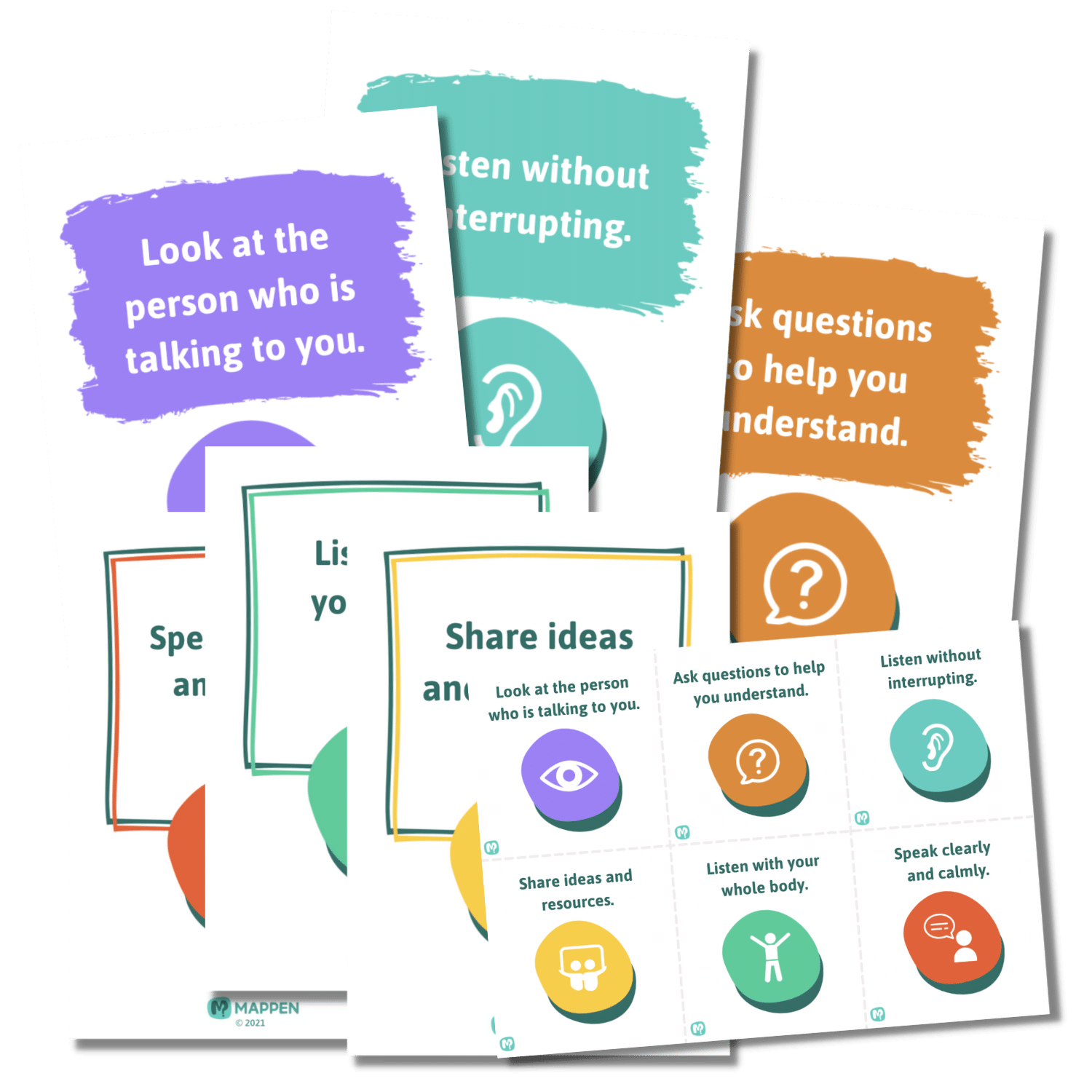The importance of explicitly teaching social skills
As our students move through school, it is important that they learn how to work well with others.
A good teacher is opportunistic when it comes to teaching these skills. For example:
Bobby just snatched a pen out of Janine’s hand; I’ll use this as an opportunity to explain why sharing is important.
Or, Michelle is complaining that she can’t understand something; I’ll use this to explain to her that she may need to ask more questions to help her understand.
Beyond these opportunistic teaching moments, we have a responsibility to ensure that all students are proactively and explicitly taught these skills. It is not good practice to opportunistically teach spelling or addition, so it is not acceptable to teach the social skills this way.
Incorporated into our curriculum are six social skills for junior students, and 18 social skills for older students. The social skills we have selected are concise and easy to understand. Applying these skills leads students to develop their social competence.
1. Explicit teaching of social skills
Without explicit language to describe each of these skills, students resort to personal attack and make general complaints such as; ‘Billy is bossy’ or ‘Sarah is lazy’. Providing labels for these behaviours allow students to identify deficiencies in themselves and others.
We have produced some free social skills cards and posters to download for your classroom:
2. Using Historical or Fictional characters
Prompt your students to analyse the behaviour of a historical or fictional character and how that person or character could have acted differently.
As your students learn about a great leader you could prompt your students to consider which social skills that leader used to help get their message across. You could prompt your students to consider which social skills a particular fictional hero is good at and examine what would happen if they stopped acting this way.
Conversely, you can prompt your students to consider how an immoral character could improve their behaviour. You can also prompt your students to write a creative story that highlights why a particular social skill is important, wherein a character learns an important life lesson.
Using these historical or fictional examples can give some students a perspective that everyone needs to practice these social skills.
3. Setting personal goals
Prompt each student to set short term and long term goals around improving their social capabilities. You can prompt individual students to consider which social skill they will focus on for a single lesson. Setting a short-term goal can be motivational for students because the changes can be seen quickly.
You can also prompt each student to set a long term goal that can span over a term or a year. Students need opportunities to reflect on their progress throughout the period of their goal. Providing students with rubrics around social skills is a great way to do this.
New to MAPPEN?
We’d love to chat with you about your needs and show you how it works. If you’d like a demo or free access to an Exploration Account, don’t hesitate to get in touch.
—


